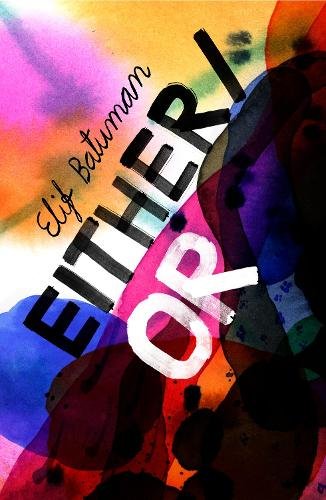Either/Or by Elif Batuman
Ah, the follow-up to The Idiot. I was nervous for this one because I did so love The Idiot and I wasn’t really expecting Batuman to write more of Selin’s story. Now that I’ve read this I’m sure there will be more. And I wonder whether she’ll ever write anything else.
This book asks interesting questions about what a novel should be like to read. I think this book is clever, but did I unreservedly enjoy every moment reading it? Not always. For one, Selin is growing up, and is becoming more caustic as a result. I found some of her takes to be more uncomfortable and occasionally spiteful when contrasted with the naivety of The Idiot. I had actually just ‘re-read’ The Idiot by listening to it, so I felt quite alert to all the subtle differences between the two books. And they are quite subtle because Either/Or is a lot of the same – it’s Selin making her way through her second academic year at Harvard, commenting on everything and anything that interests her, from literature and film to larger philosophical questions. It is meandering and slow and this will frustrate many readers who don’t like these ‘literary’ reflective books. But as Selin herself remarks (and we suspect Batuman too, whose role seems to become even more metafictional over the course of this book), why are science and history books allowed be boring but other books aren’t? And also, why can’t a literary work be overly personal and specific and navel-gazing? Does Batuman have to make up characters and events off the top of her head or can she just rename people in her past and describe her observations? Is that a novel? Is it a good novel? I would conclude – with Batuman I presume – that yes, it can and does. But using Selin to ask these questions about her own writing is certainly an interesting way to comment on criticism of your novel even before it’s even happened.
But yes, this book feels more ‘grown-up’, not least because of Selin’s sexual awakening. I definitely preferred the second half of it, where it moves away from Ivan-obsession. Batuman does a wonderful job of describing the mania of being in love in the first part – especially with someone that doesn’t love you back. For example, Selin describes finding that every single one of the lines from André Breton’s Nadja seems to apply directly to her life (we’ve all been there, although for most of us it was probably the lyrics of a song rather than a French novel from 1928). Overall, I think if you liked The Idiot, you’ll like this one too. Batuman draws profound observations out of the life of this Harvard teenager, and it is also funny and enjoyable and meandering and a strange approach to novel-writing. I will be reading further instalments for sure.
